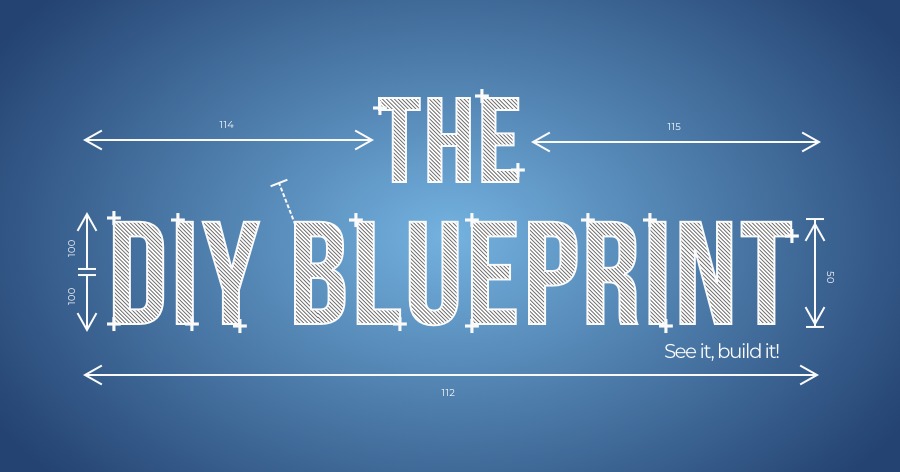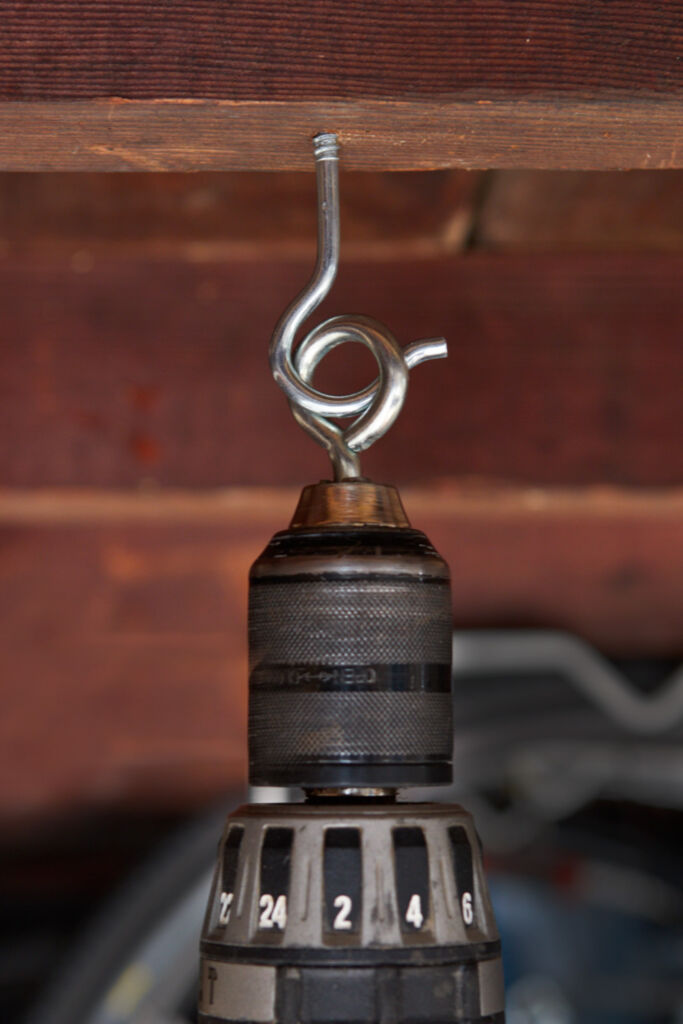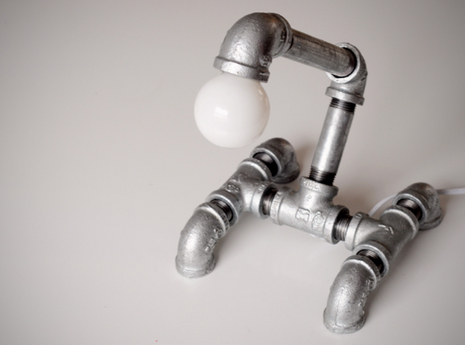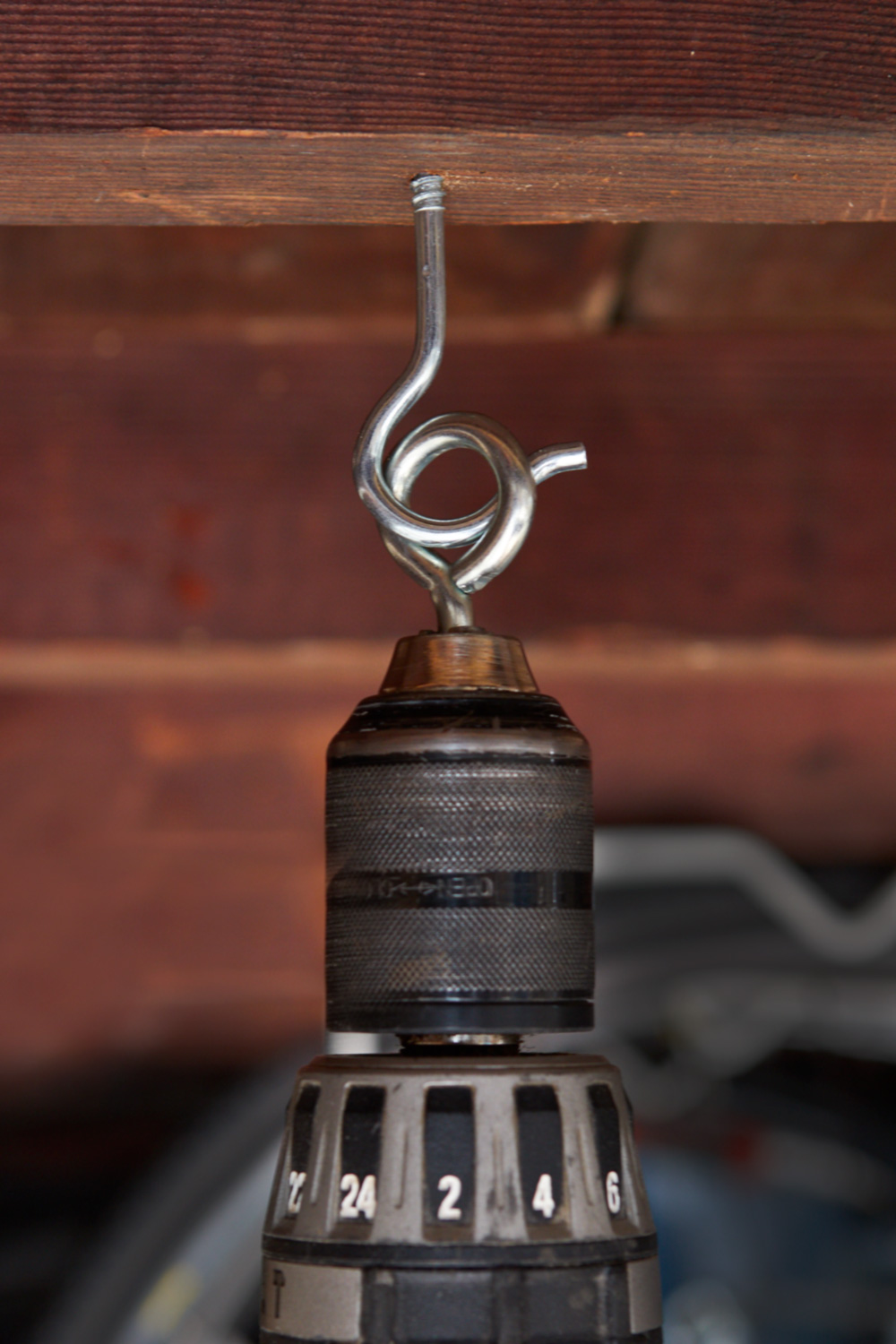
Okay, friends. This is one of my all-time favorite DIY hacks. I learned it more than fifteen years ago from a book I got from the library and committed it to memory. I only need it about once or twice a year, but it works every. single. time. I’m always super grateful to have it on hand, and so today, I’m sharing so you too can stop busting your hand and banging your knuckles every time you need to install a screw hook into wood or anywhere else.
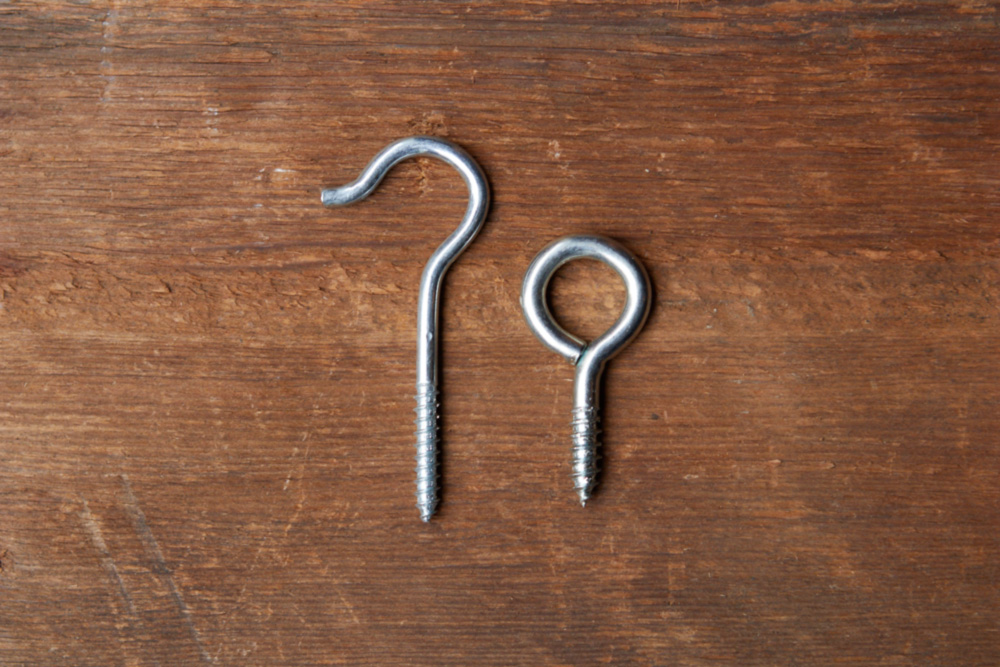
The trick with inserting large hardware like this is, you need quite a bit of rotational force or torque. Your arms and pliers might work with smaller hardware in extremely softwood, but otherwise, most of us can’t just spin one of these in.
Most hardware has a drive-able head, like a bolt or a screw, and we’ve developed tools to apply torque to them: a wrench, a socket, a screwdriver, a drill, etc And while there may be a tool out there called a hook driver, I don’t have one. And, to be honest, with this hack, I don’t need one. So here’s how to install a hook screw or screw eye, or even an eyebolt; use them against each other.
How to Install a Screw Hook Using a Hook Eye
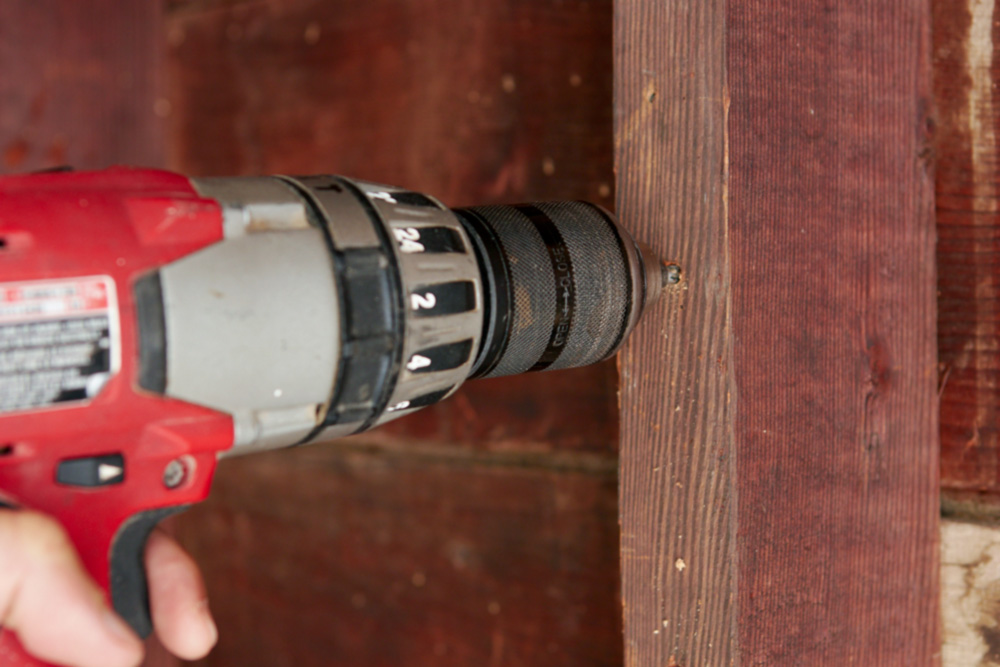
First, determine your desired location, and if you can, drill an appropriately sized pilot hole. This isn’t always necessary, but it makes your work way, way easier. In this case, I’m in my garage working in 90-year-old vertical grain fir, which after the years, is so dry and so hard, it’s nearly impossible to get into.
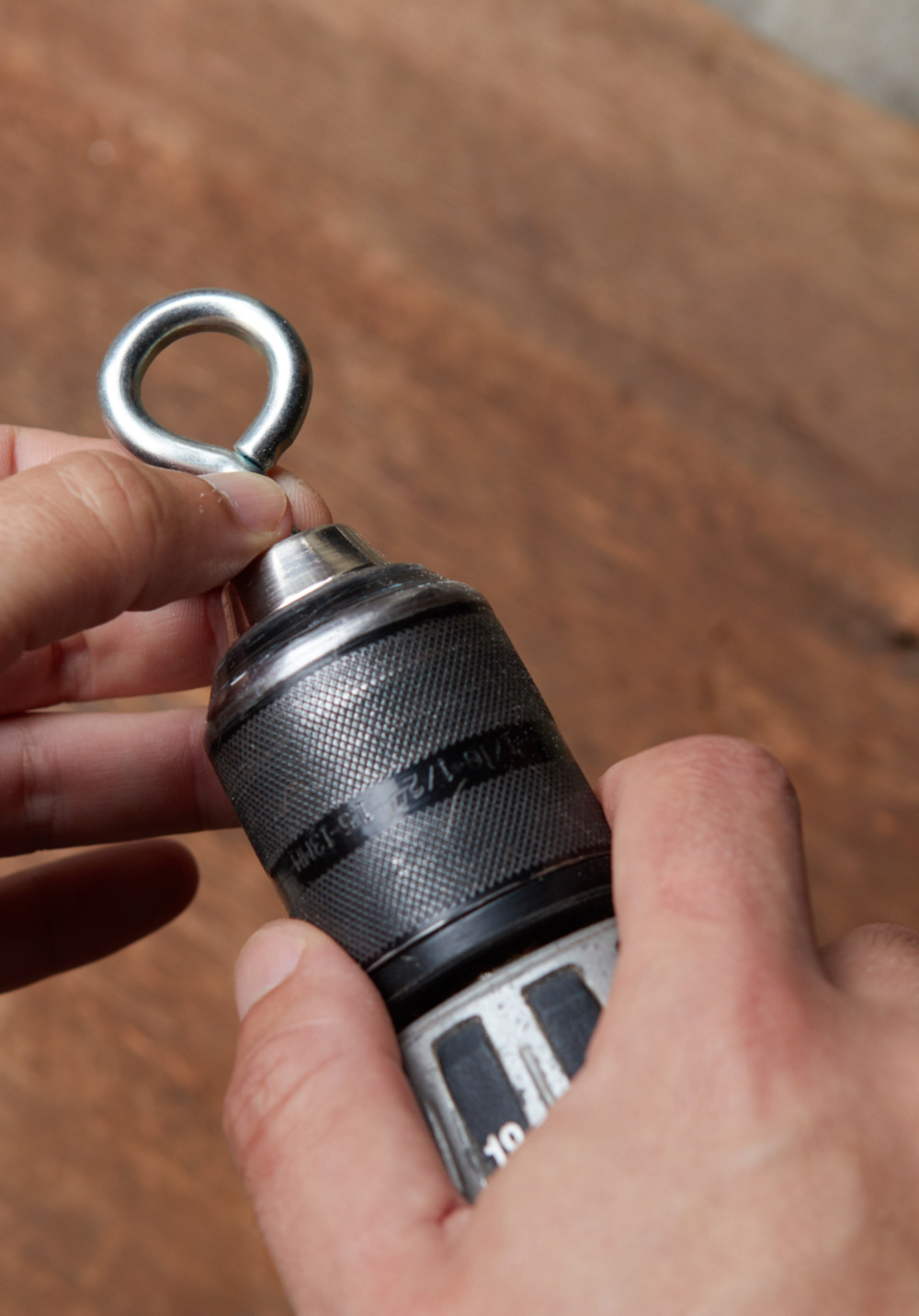
Then, chuck the opposite hardware into your drill. If you’re installing a hook eye, use a screw hook; if you’re inserting a hook, use an eye.
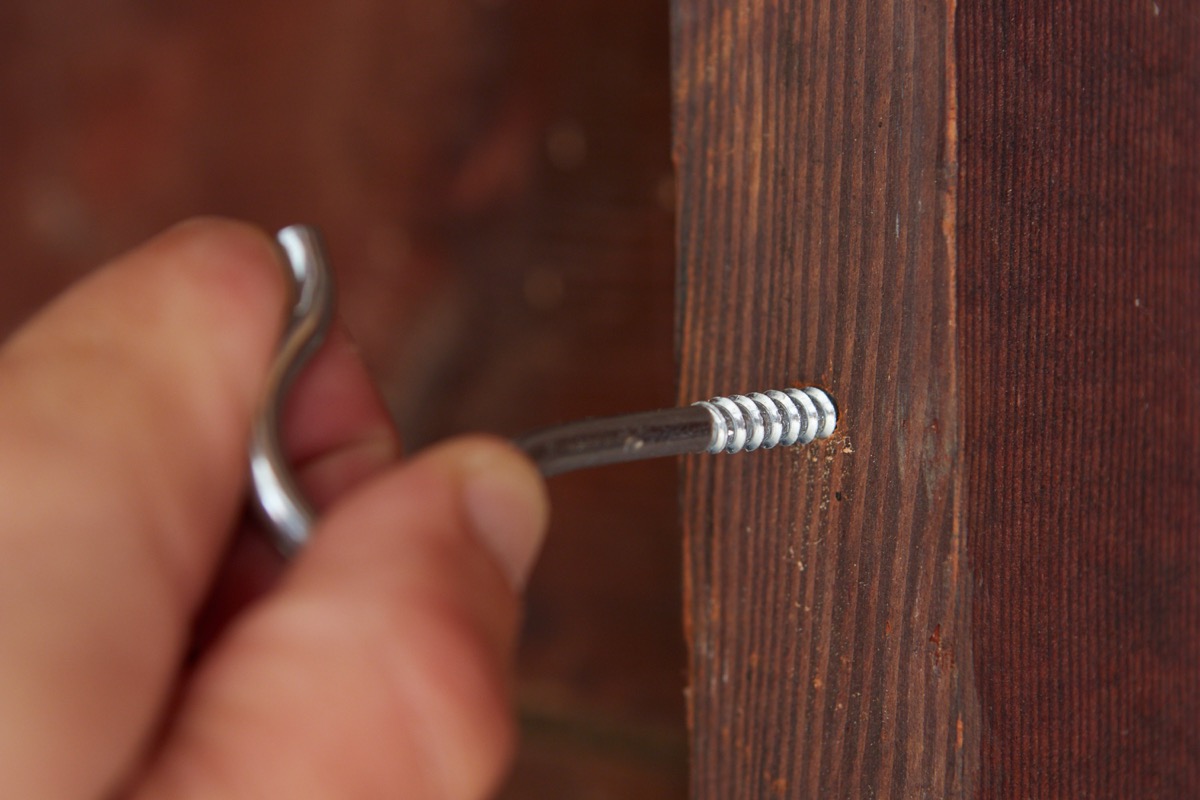
Insert the hardware into the pilot hole and spin it a few times until the threads start to catch.
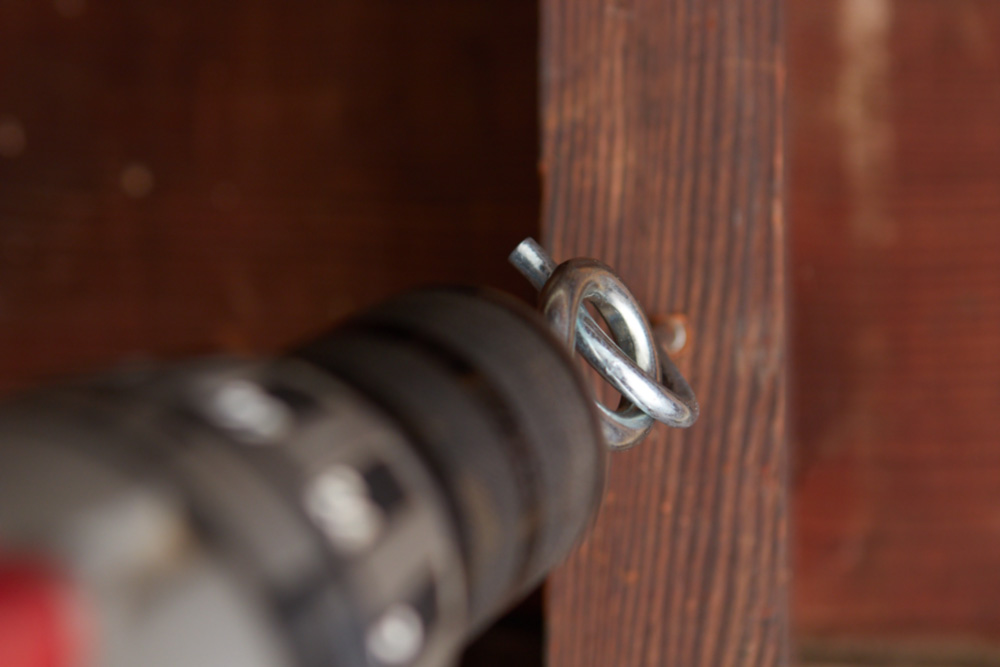
Then, just interconnect the hardware, and pull the trigger slowly until they get in sync.
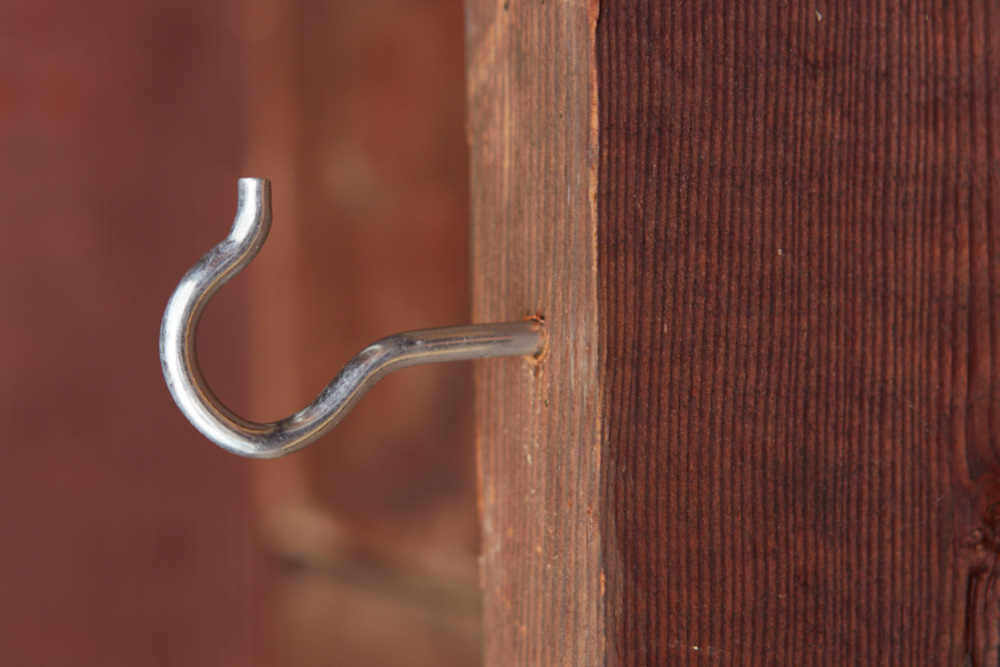
Then, just keep going at the minimum amount of speed it takes to sink it home. (Going slow will reduce the likelihood that you’ll bend the metal.)
And, done. Onto the next one.
Do you have any favorite DIY hacks like this one?
